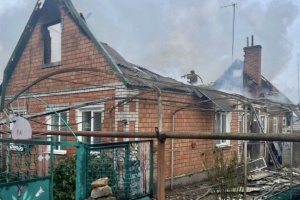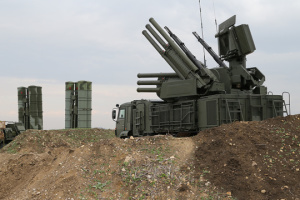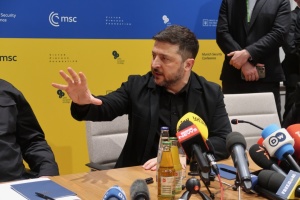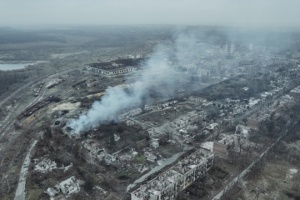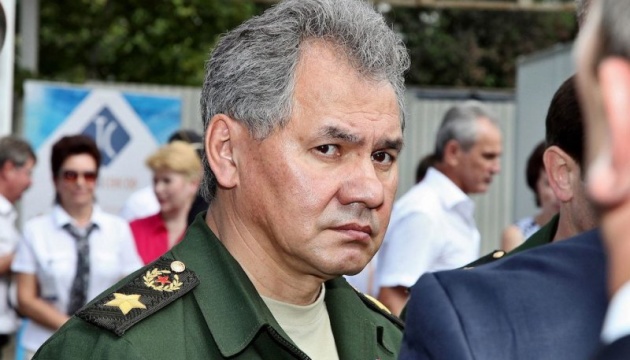
How Kremlin propaganda adjusts its playbook amid Russian army’s battlefield failures
Thus, Russia denies the successes of the Ukrainian Army in the counterattack, continuing to focus on the alleged shortcomings of the Ukrainian defense system, and “changes in the tactics of the ‘special military operation,’” assuring, as always, that “everything goes according to plan.” The Center for Countering Disinformation and Information Security has collected several examples of how the Kremlin propaganda adjusts its playbooks amid their army’s military defeats in the war against Ukraine.
“There is no counteroffensive of Ukrainian troops, everything goes according to plan of the ‘special military operation’”
With Ukraine’s first bolt-speed liberation of its cities and towns, Russian propagandists launched a massive campaign of excuses and explanations for domestic audiences. If Russia called the liberation of Snake Island from the Russian occupation a “gesture of goodwill,” then the loss of Balakliya, Izium, and Kupyansk was justified by the decision to “regroup” and “conduct an operation to fold and organize the transfer of the Izium-Balaklia grouping to the territory of the ‘DPR.’” In addition, on August 24, defense chief Sergei Shoigu announced “a deliberate slowdown in the pace of the Russian offensive” in order to “save the lives of the civilian population.” Similarly, in March, he referred to the retreat of Russian troops from Kyiv and Chernihiv regions as a “drastic reduction in military activity” in order to “increase mutual trust” (a hint at the possibility of resuming negotiations in Istanbul). The real reason for the retreat in both cases, however, was serious losses sustained in action and the inability to ensure proper supplies.
The message “everything goes according to plan” appears when something actually goes wrong. For example, this is how the Russian minister of defense explained the strikes by Ukrainian forces on Snake Island and the beginning of the Ukrainian counterattack in Kherson region. Since society is unaware of any military plans, any Russian failure on the battlefield can be justified by tricks within a “broader plan” claim.
“Russia is provoked to escalation and use of nuclear weapons”
Russian propagandists from the onset of the full-scale invasion began to discuss the expansion of the Russian war against Ukraine to “World War III” and its “completion with a nuclear strike”. Russian nuclear blackmail in response to fictional “Western provocations” has become particularly relevant recently in Putin’s addresses. It was mentioned with renewed vigor on September 21 in Putin’s video address, which emphasized that “this is not a bluff!”
In addition, such narratives are also circulated by pro-Kremlin channels, targeting European audiences. Thus, Russia puts itself in the role of a “victim,” who is forced to defend against the “unjust world” and incline to action in response, considering the use of nuclear weapons.
“New stage of the ‘special military operation’”
The message was again revived in Russian propaganda after the massive Russian missile attacks on Ukraine on October 10. It was then that the propagandists took turns claiming the “new stage of dismantling Ukraine” with calls for “repeated and regular” strikes. They see “critical infrastructure” as their main target. According to propagandists, all this is to “deprive Ukraine of comfort” because “Ukraine has adapted to the current war thanks to Western support.”
“Ukraine's air defense is ineffective. It cannot cope with large-scale drone attacks”
With similar narratives, Russian propaganda tries to continue to focus on the shortcomings of Ukraine’s defense system to justify own powerlessness. This narrative was especially active during the massive Russian missile attacks on Ukraine.
Stoking tensions on the part of Belarus
Belarus is intensively preparing, in their opinion, for the “attack on Ukraine,” and Russian propaganda will further play along, creating panic and helping find fictional “provocations” on the part of other states, including Ukraine.
“Ukraine is a terrorist state”
The Kremlin media have shifted in their designations of Ukraine from a “country of Nazis and fascists” to a “terrorist state.” It’s worth noting that in August, members of the Just Russia — For Truth faction even submitted to the State Duma a draft law “On Recognition of Ukraine as a Terrorist State and Confiscation of Property Belonging to Its Citizens in Favor of Russia.” So, it is this vision that Russian propagandists and officials are now trying to impose onto their audiences most often.
Center for Strategic Communication and Information Security

